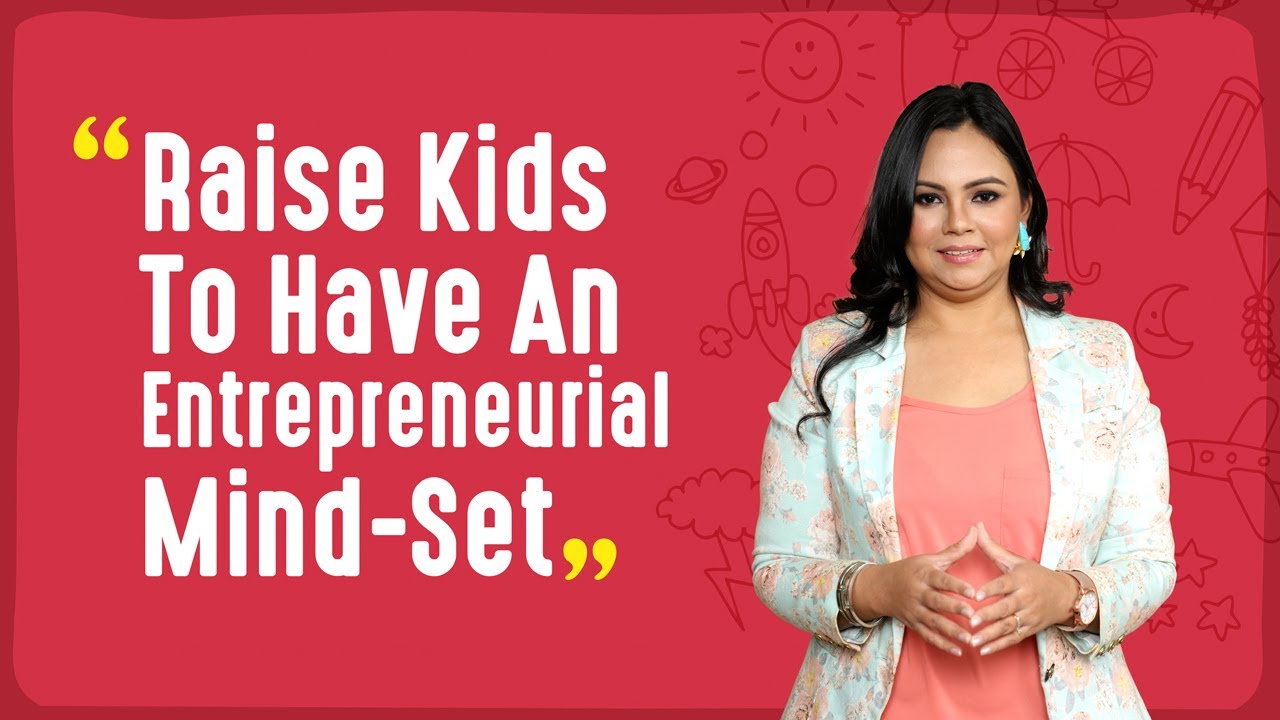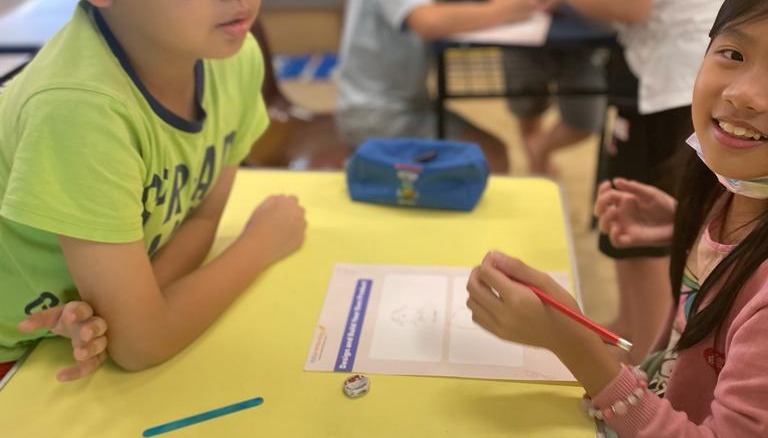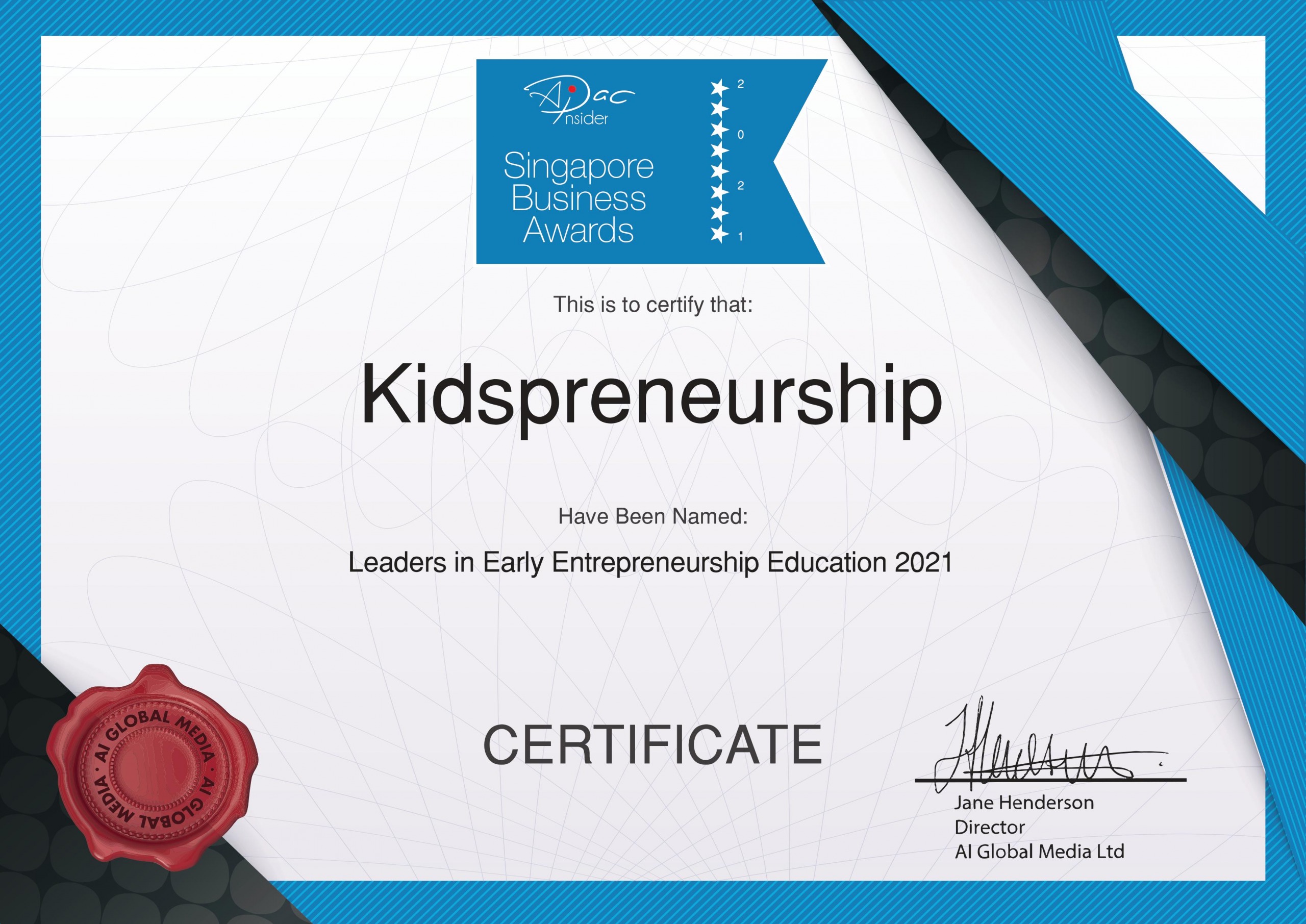How Educators Shape Entrepreneurial Mindsets in Students
The global landscape is undergoing significant changes, primarily influenced by the far-reaching effects of the COVID-19 pandemic. This crisis has left an indelible mark on economies, societies, personal lives, and social networks worldwide. Simultaneously, there is a rapid pace of innovation, driven by digital technologies reshaping the way we live and work.
Amidst these transformations, world leaders are collaboratively addressing the United Nations’ Sustainable Development Goals, targeting health, education, gender equality, energy, and more. Private sector leaders are recognizing the importance of considering corporations’ social and environmental impact. In this dynamic environment, the question arises: How can educators prepare students for success in this turbulent yet promising global setting?
As the world evolves, so do the skills required for successful careers and societal betterment. To meet these evolving needs, educators play a crucial role in fostering an entrepreneurial mindset among students. This mindset, characterized by the attitudes and behaviors typical of entrepreneurs, empowers individuals to identify opportunities, adapt to changes, and view mistakes as valuable learning experiences.
Six Approaches to Foster Entrepreneurial Thinking Among Students:
Project-Based Learning for Autonomy to Develop Entrepreneurial Mindsets in Students
Empowering students to chart their own educational course through team-based, project-oriented learning represents a paradigm shift in pedagogy. This approach transcends traditional teaching methods, aiming to instill a sense of autonomy, creativity, and problem-solving prowess in students. The objective is not merely to transmit information but to cultivate a dynamic and entrepreneurial mindset.
In this educational model, students are not passive recipients of predefined knowledge but active participants in their learning journey. They are tasked with identifying real-world problems, a process that necessitates critical thinking and an acute awareness of the challenges around them. By encouraging students to delve into problem identification, educators foster a mindset that is inherently attuned to the needs of the world and equipped to address its complexities.
The subsequent step, conducting market research, propels students into a practical exploration of the issues they have identified. This phase requires them to engage with the broader context, understand market dynamics, and evaluate potential solutions. In doing so, students not only deepen their understanding of the problems at hand but also develop research and analytical skills crucial for entrepreneurial endeavors.
Crucially, the absence of a predefined blueprint is intentional. It is a deliberate departure from the traditional, structured approach to learning. Instead of providing a step-by-step guide, educators encourage students to embark on a journey of creative exploration. This lack of a predetermined path compels students to think beyond the confines of established norms, fostering a spirit of innovation and originality.
Moreover, this approach prioritizes the development of problem-finding skills over problem-solving alone. While problem-solving is a valuable skill, the ability to identify the right problem to solve is equally—if not more—important. By navigating uncharted territories without a prescribed roadmap, students hone their ability to discern the crux of an issue, a skill indispensable in entrepreneurial thinking.
The emphasis on team-based collaboration further enhances the richness of this learning experience. Working in teams exposes students to diverse perspectives, fostering an environment where collective creativity flourishes. Negotiating different viewpoints, brainstorming ideas, and collectively refining solutions not only mirror real-world collaborative dynamics but also equip students with essential teamwork and communication skills.
In essence, encouraging students to chart their own course through team-based, project-oriented learning is a transformative educational strategy. It molds students into proactive, innovative thinkers who are adept at identifying and addressing real-world challenges. By steering away from predefined blueprints, educators pave the way for a learning experience that nurtures creativity, problem-finding skills, and the collaborative spirit essential for success in the dynamic landscape of the 21st century.
Unleashing Creativity Through “Unlearning” to Foster Entrepreneurial Mindsets in Students
Prompting students to think broadly and break free from traditional mindsets constitutes a fundamental shift in educational philosophy. This approach is centered on fostering a mindset that transcends the confines of conventional thinking, encouraging students to become innovative, adaptable, and open-minded individuals.
The first step involves urging students to think broadly, which goes beyond the narrow boundaries of rote memorization and standardized learning. It invites them to consider diverse perspectives, question assumptions, and explore connections across disciplines. This broadening of intellectual horizons lays the foundation for a more holistic and comprehensive understanding of the world.
Breaking free from traditional mindsets is an integral part of this process. Students are encouraged to challenge established rules, norms, and paradigms. This act of intellectual rebellion is not about rejecting knowledge but rather about critically examining it, understanding its limitations, and seeking new ways of approaching problems. By doing so, students learn to view knowledge as dynamic and subject to evolution rather than static and rigid.
Creative exploration is another key component of this educational paradigm. By encouraging students to explore new possibilities, educators nurture a spirit of curiosity and experimentation. This approach instills the belief that there are multiple ways to approach a problem and that creativity is a valuable tool for finding innovative solutions. This mindset is particularly relevant in a world where the ability to think outside the box is increasingly prized.
Challenging established rules is not merely about fostering a rebellious spirit; it’s about cultivating a sense of agency in students. When students are empowered to question and redefine the rules, they become active participants in their own learning journey. This sense of ownership fuels intrinsic motivation, leading to a deeper and more meaningful engagement with the subject matter.
The shift from a teacher-centric to a student-directed approach is foundational to this transformative educational model. In a teacher-centric approach, knowledge is disseminated from the instructor to the students in a one-way flow. Conversely, a student-directed approach places the learner at the center, allowing them to actively participate in shaping their educational experience. This shift acknowledges that learning is a dynamic and individualized process, varying from student to student.
Navigating ambiguity becomes a crucial skill in this student-directed approach. Instead of providing clear-cut answers, educators encourage students to grapple with uncertainty, explore uncharted territories, and make informed decisions in the absence of a predetermined roadmap. This skill is vital not only in academic pursuits but also in preparing students for the complexities and uncertainties of real-world scenarios.
In conclusion, prompting students to think broadly, challenge traditional mindsets, and explore new possibilities is a pedagogical approach that cultivates a mindset of intellectual curiosity, adaptability, and creativity. It shifts the locus of control from the teacher to the student, empowering learners to navigate ambiguity and become active contributors to their own education. This paradigm is not just about imparting knowledge; it’s about nurturing a generation of critical thinkers and innovators ready to face the challenges of a rapidly evolving world.
Bold Actions Through Experiential Learning to Inculcate Entrepreneurial Mindsets in Students
Embracing a “ready-fire-aim” approach in education signifies a departure from traditional methodologies, immersing students in real-world entrepreneurial experiences that mirror the dynamic and unpredictable nature of the business world. This approach aligns with the ethos of entrepreneurship, emphasizing action, learning through experience, and adapting strategies based on real-time feedback.
Central to this approach is the task of creating a business from scratch, an undertaking that challenges students to apply theoretical knowledge to practical scenarios. This hands-on experience goes beyond theoretical understanding, fostering a deeper comprehension of the complexities and nuances involved in entrepreneurship. Students are required to grapple with the intricacies of business development, from conceptualization to execution, learning invaluable lessons that textbooks alone cannot provide.
Operating the business for a month further amplifies the experiential learning aspect. This time frame allows students to witness the evolution of their ventures in a condensed yet impactful setting. It compels them to make swift decisions, manage resources judiciously, and navigate the challenges of running a business in real-time. The compressed timeline mirrors the fast-paced nature of entrepreneurial endeavors, where adaptability and quick decision-making are paramount.
Recognizing that overcoming initial resistance is crucial, especially for mature learners, underscores the transformative potential of this approach. Mature learners, who may have established ways of thinking and professional experiences, might initially find it challenging to embrace a methodology that deviates from traditional academic norms. Acknowledging and addressing this resistance becomes a crucial step in ensuring that all students, regardless of their background, can extract maximum value from the experiential learning process.
The “ready-fire-aim” approach encourages students to overcome the fear of failure and uncertainty. It instills resilience by emphasizing that taking action is the first step, even if it involves making adjustments along the way. This mindset shift is particularly vital in the entrepreneurial realm, where the ability to adapt and learn from mistakes is as valuable as any theoretical understanding.
Furthermore, this approach nurtures skills beyond textbook knowledge. Students develop practical skills such as project management, teamwork, resource allocation, and effective communication. These skills are transferable to various professional settings, enriching students with a practical skill set that goes beyond the confines of traditional classroom learning.
In conclusion, embracing a “ready-fire-aim” approach in education goes beyond theoretical instruction, immersing students in real-world entrepreneurial experiences. The creation and operation of a business from scratch for a month provides a unique platform for students to acquire practical skills, fostering adaptability and resilience. Recognizing and addressing initial resistance, especially among mature learners, ensures that this transformative approach caters to the diverse needs of all students, preparing them for the challenges and uncertainties of the professional world.
Setting High Expectation Through Support to Imbibe Entrepreneurial Mindsets in Students
Setting ambitious goals for students serves as a catalyst for unlocking their untapped potential and propelling them toward exceptional achievements. This approach transcends the conventional boundaries of education, encouraging students to reach beyond their perceived limits and aspire to greatness. The philosophy is rooted in the belief that challenging objectives stimulate personal growth, resilience, and a proactive pursuit of excellence.
Ambitious goals create a transformative learning environment by instigating a mindset shift. Students are compelled to think beyond the ordinary, fostering creativity and innovation. This approach challenges the notion of settling for mediocrity and encourages students to envision and strive for outcomes that may initially seem beyond reach. It establishes a foundation for a culture of continuous improvement and a commitment to high standards.
Guiding students through the process of filtering ideas to focus on feasible, viable solutions is a pivotal aspect of this goal-oriented approach. While ambition is crucial, it must be tempered with practicality. Educators play a crucial role in helping students navigate the landscape of possibilities, discerning between imaginative concepts and those that are realistically implementable. This involves honing critical thinking skills, evaluating the viability of ideas, and making strategic decisions based on a blend of creativity and practicality.
Coaching and support become essential components in this journey toward ambitious goals. Providing students with a framework for success involves more than just setting objectives—it requires mentorship and guidance throughout the process. Educators step into the role of coaches, offering insights, constructive feedback, and resources to empower students. The coaching aspect is not just about imparting knowledge; it is about facilitating a transformative learning experience where students develop the skills and confidence to navigate complex challenges.
In addition to guidance, the provision of support is crucial for instilling confidence and self-reliance. Students need to feel a safety net that allows them to take risks, knowing that there is a supportive environment to catch them if they falter. The journey toward ambitious goals often involves overcoming obstacles and setbacks. By providing unwavering support, educators cultivate a resilient mindset in students—one that views challenges not as insurmountable barriers but as opportunities for growth.
The combination of ambitious goal-setting, guided ideation, and dedicated coaching fosters an environment where students not only achieve their potential but often surpass it. The experience goes beyond the acquisition of academic knowledge; it hones skills such as problem-solving, decision-making, and adaptability—skills that are instrumental not only in academic pursuits but also in navigating the complexities of professional and personal life.
In conclusion, setting ambitious goals for students, guiding them through the process of idea filtration, and providing coaching and support constitute a holistic educational approach. This methodology not only encourages academic excellence but also nurtures a mindset of resilience, self-reliance, and a commitment to continuous improvement. It equips students not just for the challenges of the classroom but for the broader journey of lifelong learning and achievement.
Embracing Course Correction and Learning from Failure to Foster Entrepreneurial Mindsets in Students
Cultivating the ability to course-correct, learn from mistakes, and move forward is a cornerstone of an effective educational strategy that goes beyond traditional paradigms. This approach recognizes that the journey toward success is seldom a linear path; instead, it involves adapting to challenges, learning from setbacks, and developing resilience in the face of unpredictability.
Positioning hurdles as learning opportunities represents a fundamental shift in perspective. Rather than viewing obstacles as barriers to success, this approach encourages students to see them as invaluable chances for growth. By reframing challenges as opportunities to learn and improve, educators instill a mindset that embraces adversity. This perspective is particularly crucial in preparing students for the real world, where resilience and adaptability are often more significant determinants of success than the absence of obstacles.
Allowing students to experience failure becomes an integral part of this educational philosophy. Failure, in this context, is not seen as a definitive endpoint but as a stepping stone toward improvement. It provides students with a unique lens through which they can analyze their actions, understand the consequences of decisions, and identify areas for enhancement. This process of learning through failure is synonymous with the entrepreneurial mindset, where setbacks are seen as inherent components of the journey rather than reasons for cessation.
Guiding students in navigating challenges during their educational journey is a proactive role that educators play. Instead of shielding students from difficulties, educators act as mentors, helping them develop problem-solving skills and the emotional intelligence necessary to navigate adversity. This guidance involves imparting practical strategies, fostering self-reflection, and providing a supportive environment where students feel empowered to confront challenges head-on.
The concept of allowing students to experience failure and guiding them through challenges extends beyond academic realms. It prepares students for the complexities and uncertainties of life, where unexpected hurdles are inevitable. By developing a mindset that not only tolerates but embraces failure as a mechanism for growth, educators equip students with a powerful tool for success in their academic, professional, and personal lives.
Moreover, this approach encourages a healthy relationship with failure—one that does not demoralize but motivates, one that views challenges not as insurmountable barriers but as opportunities for refinement. It fosters a sense of perseverance and tenacity, qualities that are crucial not only for academic achievement but also for success in an ever-changing, unpredictable world.
In conclusion, cultivating the ability to course-correct, learn from mistakes, and move forward involves a transformative educational philosophy. By positioning hurdles as learning opportunities and allowing students to experience failure, educators contribute to the development of a resilient, adaptable mindset. This approach not only prepares students for the unpredictability of the real world but also instills in them a lifelong capacity for continuous learning and improvement.
Regular Communication to Establish New Ways of Thinking to Nurture Entrepreneurial Mindsets in Students
Encouraging students to establish a daily reflective practice outside the classroom represents a deliberate effort to extend the learning experience beyond the confines of traditional academic settings. This practice is centered on the recognition that genuine, lasting transformation involves more than sporadic engagement—it requires a sustained and intentional effort for self-reflection and personal growth.
The concept of a daily reflective practice underscores the importance of introspection in the learning process. By setting aside time each day for contemplation, students engage in a process of self-discovery and self-awareness. This reflective practice enables them to consolidate their learning, internalize key concepts, and connect classroom knowledge with real-life experiences. Moreover, it fosters a habit of continuous learning, encouraging students to be proactive in their educational journey.
Sending “mindset vitamins” that reinforce entrepreneurial thinking is a creative and proactive approach to educational reinforcement. These messages serve as succinct yet impactful reminders that penetrate students’ daily routines, injecting doses of inspiration, motivation, and strategic thinking. By leveraging platforms like messaging apps or other communication channels, educators create an ongoing dialogue that extends the learning experience far beyond the classroom hours. This practice aligns with the principles of spaced repetition, reinforcing key concepts at intervals to solidify understanding and promote long-term retention.
Continuous communication becomes a pivotal tool in this educational strategy. It’s not just about delivering content; it’s about nurturing a dynamic relationship between educators and students. This ongoing dialogue allows educators to gauge students’ progress, address queries, and provide additional support as needed. Moreover, it creates a sense of community, fostering a shared commitment to the development of an entrepreneurial mindset. Regular communication also provides opportunities for students to share insights, discuss challenges, and celebrate successes, contributing to a collaborative and engaging learning environment.
This sustained communication strategy aims to solidify the shift in mindset over time. It acknowledges that a transformative change in thinking is a gradual process, requiring consistent reinforcement and support. By maintaining an ongoing conversation, educators play an active role in shaping the mindset of their students beyond the immediate course duration. This approach recognizes the fluid nature of learning and the importance of continued guidance in fostering a lasting impact.
In conclusion, encouraging students to establish a daily reflective practice, sending “mindset vitamins,” and promoting continuous communication form an integrated approach to nurturing an entrepreneurial mindset. This strategy not only reinforces key concepts but also cultivates a habit of continuous learning, self-reflection, and proactive engagement. By extending the learning experience beyond the classroom, educators contribute to the development of a mindset that transcends academic boundaries and prepares students for success in a dynamic, ever-evolving world.
Adopting these approaches requires educators to rethink and, if necessary, redesign their courses. Experimentation is key, and openness to failure is vital, mirroring the entrepreneurial spirit. By modeling the entrepreneurial mindset and involving students in the co-creation of learning experiences, educators can equip them to navigate future challenges and seize opportunities in an ever-changing world.
To summarize, in the dynamic landscape of education, educators wield a pivotal influence in shaping the mindset of the next generation. The cultivation of an entrepreneurial mindset among students is not merely a pedagogical pursuit but a strategic imperative for preparing them to thrive in a world marked by constant change and innovation.
As guardians of knowledge and facilitators of learning, educators play a multifaceted role in instilling entrepreneurial thinking. Beyond the traditional paradigms of imparting information, they serve as guides, mentors, and catalysts for students’ creative exploration. The current global challenges, exacerbated by the COVID-19 pandemic, underscore the urgency of equipping students with skills that transcend the conventional and embrace adaptability, resilience, and problem-solving.
Project-based learning stands out as a powerful vehicle for fostering autonomy and innovative thinking. By challenging students to embark on unstructured journeys, educators empower them to identify real-world problems, conduct in-depth market research, and collaboratively devise solutions. The absence of a predefined blueprint encourages students to step out of their comfort zones, developing the critical ability to navigate ambiguity—a skill paramount in an entrepreneurial context.
Furthermore, the concept of “unlearning” takes center stage in dismantling rigid mindsets. Educators are tasked with breaking down the barriers of traditional thinking, encouraging students to question established rules and embrace the freedom to explore new possibilities. The shift from being the sole purveyors of knowledge to becoming guides on the side transforms the learning environment into a dynamic space where students actively engage with the learning process.
Experiential learning emerges as a cornerstone in the pursuit of fostering an entrepreneurial mindset. The “ready-fire-aim” approach, akin to the startup ethos, immerses students in the practical intricacies of entrepreneurship. By creating for-profit businesses from scratch and navigating the challenges of operation, students gain firsthand experience that transcends theoretical knowledge. While initial resistance may be encountered, particularly among more experienced learners, this approach aligns with the essence of entrepreneurial endeavors—embracing uncertainty and learning through action.
Setting high expectations serves as a catalyst for unleashing the latent potential within students. The entrepreneurial journey, often marked by grandiose ideas at the outset, requires educators to guide students in distilling these concepts into feasible and viable projects. The coaching and support provided by educators become invaluable, fostering a sense of initiative and self-reliance among students.
Crucially, the entrepreneurial mindset encompasses an intrinsic ability to navigate setbacks and view failures as stepping stones to success. Educators, as stewards of this mindset, create a safe space for students to encounter challenges, make mistakes, and learn from them. Building opportunities for students to pivot, or course-correct, becomes integral to the learning process, preparing them for the unpredictable terrain of real-world entrepreneurship.
Regular communication outside the classroom emerges as a strategic tool in establishing and reinforcing the entrepreneurial mindset. By encouraging students to embrace a daily reflective practice, educators facilitate continuous self-awareness and mindset development. Leveraging messaging platforms for the dissemination of “mindset vitamins” underscores the commitment to nurturing a transformative way of thinking.
In conclusion, the role of educators in fostering an entrepreneurial mindset transcends the boundaries of conventional teaching. It is a strategic imperative, an investment in the future preparedness of students to navigate the uncertainties and complexities of an ever-evolving world. Through project-based learning, the encouragement of unlearning, experiential learning, setting high expectations, embracing failure, and regular communication, educators become architects of a mindset that equips students not just for academic success but for success in life.
Jamie Siminoff ’99 and the Power of Entrepreneurial Thinking




























